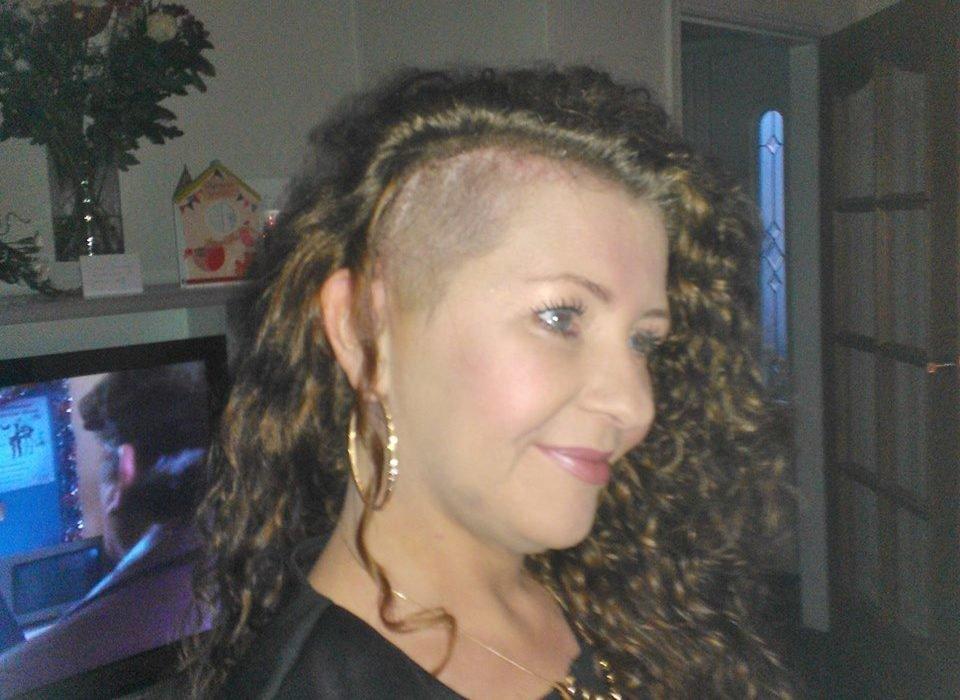Woman diagnosed with incurable brain tumour claims cannabis oil ‘saved her life’
By the sixth MRI, the cancer had gone

Your support helps us to tell the story
From reproductive rights to climate change to Big Tech, The Independent is on the ground when the story is developing. Whether it's investigating the financials of Elon Musk's pro-Trump PAC or producing our latest documentary, 'The A Word', which shines a light on the American women fighting for reproductive rights, we know how important it is to parse out the facts from the messaging.
At such a critical moment in US history, we need reporters on the ground. Your donation allows us to keep sending journalists to speak to both sides of the story.
The Independent is trusted by Americans across the entire political spectrum. And unlike many other quality news outlets, we choose not to lock Americans out of our reporting and analysis with paywalls. We believe quality journalism should be available to everyone, paid for by those who can afford it.
Your support makes all the difference.A cancer patient who was given just months to live has made an incredible recovery, which she credits to using cannabis oil.
Lynn Cameron, 48, from Blantyre, Scotland, was given six to 18 months to live after being diagnosed with an incurable brain tumour in December 2013.
But, despite several sessions of chemotherapy and radiotherapy, scans were showing no change to the mass so she opted to try cannabis oil in a desperate bid to save her life.
Four years later, Cameron has been given the all clear and says it was the cannabis oil that helped her survive. Now, she is part of a new campaign group, Medical Cannabis Reform Scotland, pushing “for the reform of the current prohibitive laws around the use of cannabis for medication”.
After being told that she had stage 4 terminal brain cancer, Cameron tried all the traditional routes before a friend suggested using cannabis. And while she was too scared at first because it was illegal she eventually decided to give it a go.
“I researched more and more into natural ‘cancer killers’ and decided to follow an alkaline diet and cut out processed foods altogether. I also cut out sugar completely,” she told the Daily Record.
“I started taking cannabis oil under my tongue, as it gets straight into the blood stream that way.
“Each scan I received after that was showing an improvement. I had been told that chemotherapy and radiotherapy doesn’t make much difference, so I knew it must be the cannabis doing it.
“By the sixth MRI, the cancer had gone.”

Cameron kept her use of cannabis oil from the doctors until she received the all-clear and decided to challenge them on it.
“They dismissed it. They weren’t taught about cannabis at medical school – more for a political reason than medical I believe.
“They told me, ‘eat whatever you like, take all the vitamins you want, it won’t work’.
“But these were the people who told me my cancer was incurable, and it was gone.
“The British Medical Journal hasn’t properly investigated cannabis. It was up to me what treatment I took, and I’m glad I researched it.”
One of a number of patients providing anecdotal reports that cannabis has improved or cured their medical complaints, experts continue to warn that there is no definitive proof of its effects on cancer in humans.
“We know that cannabinoids can have a range of different effects on cancer cells grown in the lab and animal tumours,” Dr Kat Arney, from Cancer Research UK told the Daily Mail.
“But at the moment there isn't good evidence from clinical trials to prove that they can safely and effectively treat cancer in patients.”
Join our commenting forum
Join thought-provoking conversations, follow other Independent readers and see their replies
Comments